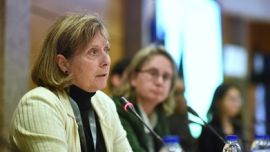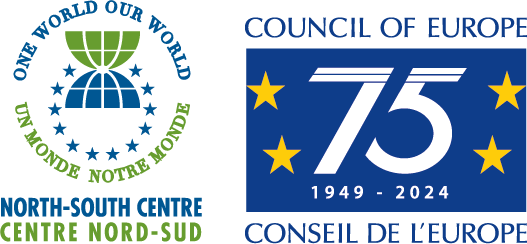Migration and asylum issues concern several actors: countries of origin, transit and destination, regional integrations such as the European Union, international organisations such as the United Nations, and specialised, such as the High Commissariat for the Refugees, national or international non-governmental organisations and associations that regroup migrant communities by country of origin. These different actors, state, inter-state and non-governmental, interact with higher or lower degree of conflict, according to the interests they defend and the national and international context. In this complex network, the only ones missing are those who are migrating or seeking asylum, who are seldom capable of creating a representing body by themselves or undertake a consequent collective action.
First of all, close attention must be given to coordination among States, international organisations and non-governmental actors. In spite of the several year’s expertise, cooperation between actors in the field of migratory challenges is still imperfect. It not only a matter of who does what, who finances and who acts. A sense of every man for himself still prevails: national or European politicians consider what they can gain, officials from international organisations don’t necessarily have a precise vision and international NGO’s do not co-operate with national NGO’s and national NGO’s are competing for funding their own projects.
Actors of civil society, at local, national or international level cannot ignore the human dimension of their work. Citizens are not only an easy prey for populism and extremism. As a matter of fact, how many times have we not been marvelled by the spontaneous humanity of local populations? In spite of the economic crisis, people have opened their homes, offered food, clothes and their spare time. These experiences in the Greek islands, cities and countryside warmth our hearts and make us want to pursue our field work.
These same actors of civil society are called in to play a capital role in promoting the integration of otherness that will be crucial for decades to come. In a globalised world multicultural reality and racial mixing won’t be stoppable and we are only at the beginning of long and ineluctable process. The political decisions that we take today and the consequences they will have for generations to come are therefore of greatest importance. Governments, international organisations or NGO’s must take on their responsibilities and define a long term vision built on intercultural dialogue and reciprocity: hosting societies must undertake all necessary steps to integrate the other, while migrants and refugees must take their destinies into their own hands integrating their new homelands. Such vision can only rest upon civil society.
There is still time to raise the alarm against the auto destructive course humanity is taking. The so called refugee crisis of 2015 shed light on a real crisis of democracy and of the values upon which the occidental civilisation is built, as well as a profound questioning of the existing political systems. In face of the rising of nationalism, xenophobia, intolerance, isolationism and self-withdrawal, the role of civil society must be more than ever strengthened. Through innovative actions, refusing the fatalism and opportunism that too often mark political action, civil society can renew and strengthen the concept of solidarity, the need for the application of rights for all, the benefits of interacting with the “Other”, the foreigner.




